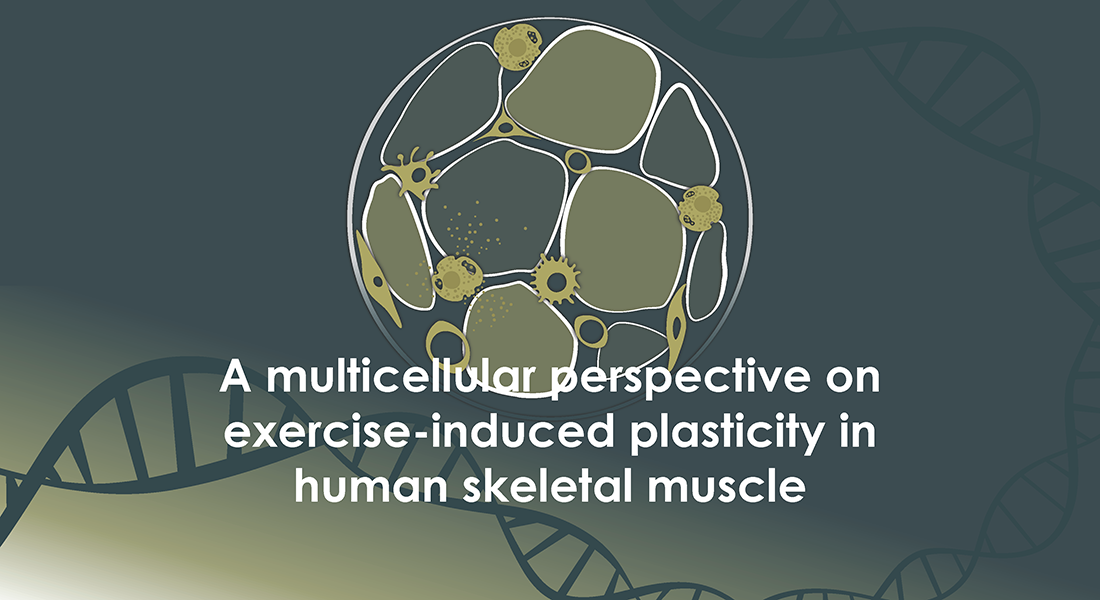PhD defence: A multicellular perspective on exercise-induced plasticity in human skeletal muscle

Thibaux Van der Stede
PhD thesis
The molecular mechanisms responsible for the health-promoting adaptations to exercise training are a complex interplay between countless biological pathways that are far from completely understood. This thesis is an attempt to further improve our understanding of the homeostatic control of skeletal muscle in relation to exercise adaptations and its rich cell diversity.
By developing two workflows for the untargeted profiling of RNA and protein expression in more than two thousand individual fibers, we were able to capture the true human muscle fiber diversity, that extends well beyond the traditional slow/fast paradigm based on myosin heavy chain isoform expression (PAPER I). Leveraging the power of our novel single-fiber methodology, we then developed a tool (fibeRtypeR) for fiber type inference from bulk transcriptomics and proteomics datasets (PAPER II). Our single-fiber transcriptome workflow was also used to understand the muscle fiber-specific transcriptional perturbations induced by acute exercise in humans (PAPER III).
The richer cell diversity beyond only the muscle fibers was systematically deconstructed by integrating various omics technologies and follow-up invasive experiments during and after exercise (PAPER IV). These data indicate that non-muscle cells, and more specifically mast cells and macrophages, harbor a powerful potential to steer the metabolic and transcriptional response to exercise via histaminergic signaling. In a follow-up study, the potent bioactive properties of histamine became even more apparent, as the beneficial exercise effects on metabolic health, cardiovascular health and aerobic capacity were partially or completely blunted by intake of histamine receptor antagonists (PAPER V).
Finally, we mapped the expression of a dipeptide family (histidine-containing dipeptides) across three species (mice, rats and humans) in over twenty tissues (PAPER VI). As the most exciting finding, N-acetylcarnosine is released from skeletal muscle during exercise in humans as a newly identified myokine.
Download Table of contents; Summaries; Publications.
2024, 336 pages.
Time
18 June 2024, 18:00-20:00
Venue
Ghent University, Belgium and online.
Examination board
Professor Dr. Jan G. Bourgois (chair), Ghent University, Belgium.
Professor Dr. Sarah Gerlo (secretary), Ghent University,
Professor Dr. Dirk Elewaut, Ghent University.
Professor Dr. Vanessa Dubois, Ghent University.
Associate Professor Dr. Rob C. I. Wüst Vrije, Universiteit Amsterdam.
Associate Professor Dr. Thomas E. Jensen, Department of Nutrition, Exercise and Sports, University of Copenhagen, Denmark.
Supervisors
Professor Dr. Wim Derave Ghent University, Belgium.
Associate Professor Lasse Gliemann, Department of Nutrition, Exercise and Sports, University of Copenhagen, Denmark.
Professor Ylva Hellsten, Department of Nutrition, Exercise and Sports, University of Copenhagen, Denmark.
Supervisory board
Professor Dr. Wim Derave Ghent University.
Em. Professor Dr. Apr. Johan Van de Voorde Ghent University.
Associate Professor Dr. Lasse Gliemann University of Copenhagen.
Professor Dr. Ylva Hellsten University of Copenhagen.
Professor Dr. Katrien De Bock ETH Zürich.
